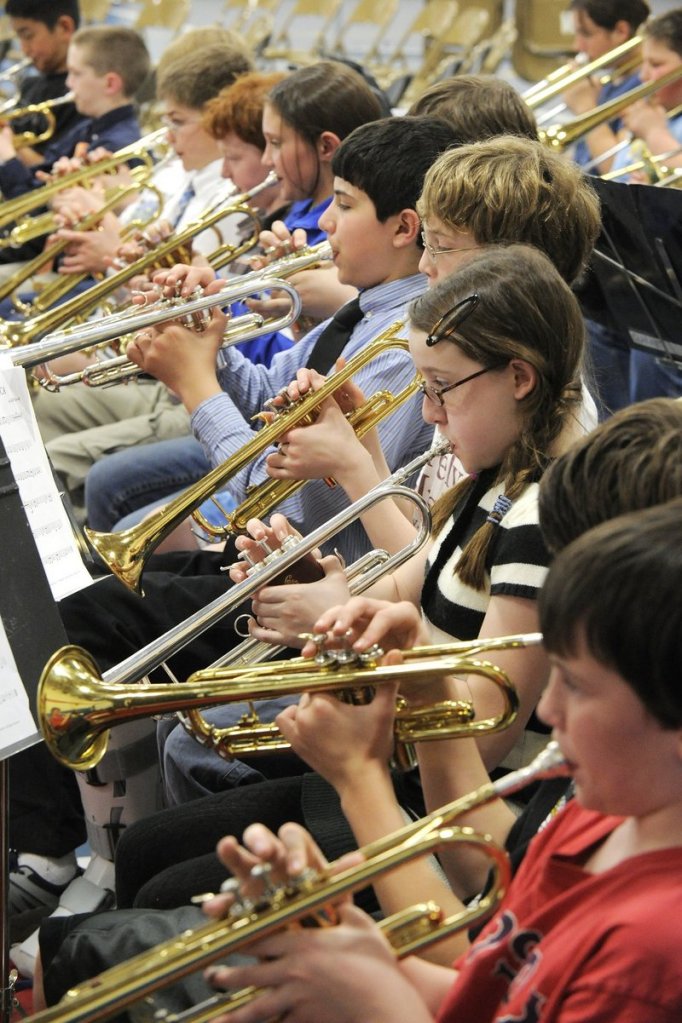SOUTH PORTLAND – School has begun, and that means that band and chorus concerts are already on the calendar.
Having attended my share of concerts for two daughters in various school music programs, I can tell you it’s wonderful to share their accomplishment as an audience member.
It’s wonderful, that is, until the squirmy child seated down a couple of rows is handed a phone by their parent, and then that child plays “Angry Birds” for the duration of the concert. I’m left distracted by the blue screen, irritated and above all, wondering why that child is even there.
This is an opportunity, when we and our children are in an audience, for parents to turn off our smartphones. I don’t mean “mute” or “vibrate” or “airline mode” or any other quasi-off position. I mean really turn it off, so it takes three seconds of holding down the power button to get it to come back on.
Here’s why: Relying on a smartphone to pacify kids teaches our children to be selfish and impolite.
• First, we teach them that when they are bored or they aren’t interested, they have the right to tune out the world. We teach them that when it’s not about them, they do not have to participate.
Handing a child a phone so they will be quiet means they never have to be quiet just because it’s polite. In this example, we are not teaching them politeness — we’re teaching them that there is something else they may be doing. That’s not the same thing.
• Second, the kids with the phones don’t engage with what is happening around them.
They are inside a cartoon or a game or texting, totally and completely blind to where they are. They aren’t listening. They aren’t watching. They aren’t proud or embarrassed or excited or, well, bored.
Children need to be taught how to watch and to listen, how to admire and appreciate what someone else has accomplished, and occasionally, how to work through boredom. These are valuable skills that we need to help our children learn, and that need to be practiced.
• Third, turning off our phones in social situations allows us to rediscover that our children are very interesting people.
Talking to them (in a restaurant, in the car, on a walk) isn’t a one-way experience; they often have interesting, funny, and curious things to say. In fact, talking to them is usually the only way to find out what they are thinking, and what they need help to learn. Why would we want to unplug them from the world?
Above all, audience etiquette takes practice. Participation at the theater consists of watching, listening, thinking, wondering and above all enjoying what is happening on the stage.
A great performance can transport you. If it’s not a great performance, there are still sights and sounds to entertain: in the audience, the theater or the insides of your eyelids.
We live in an area with wonderful schools that frequently have band concerts, chorus concerts, plays and musicals. Parents dutifully fill the seats with younger siblings of the students on stage. What a wonderful opportunity to teach these kids how to act — at a free concert, where there’s a family member on the stage. But, sadly, these are precisely the kinds of moments when the smartphones come out.
I am not a Luddite who hates smartphones. I have one, and I use it to stay informed and connected, including to my two daughters.
I am simply requesting that parents try asking a fidgety child to sit still and pay attention rather than handing over a screen.
If not, please leave the little ones at home so the people on stage get the attention, courtesy and appreciation they deserve, and so the rest of us in the audience can enjoy the show.
Meghan Gaven is a resident of South Portland.
Send questions/comments to the editors.



Success. Please wait for the page to reload. If the page does not reload within 5 seconds, please refresh the page.
Enter your email and password to access comments.
Hi, to comment on stories you must . This profile is in addition to your subscription and website login.
Already have a commenting profile? .
Invalid username/password.
Please check your email to confirm and complete your registration.
Only subscribers are eligible to post comments. Please subscribe or login first for digital access. Here’s why.
Use the form below to reset your password. When you've submitted your account email, we will send an email with a reset code.